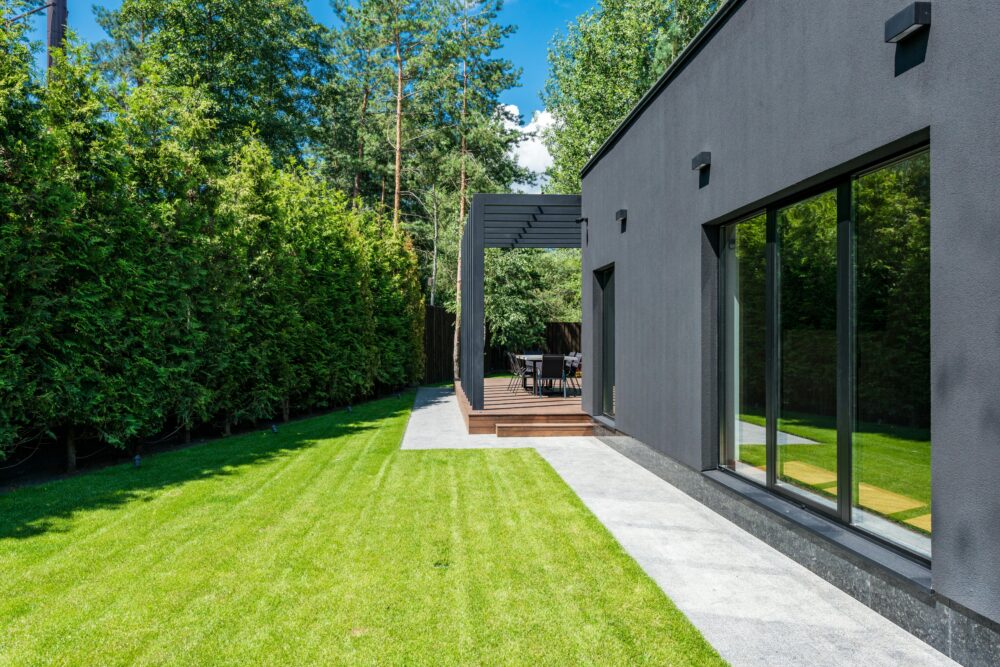
Front view of an African American couple with her son and daughter at home, moving in to their home and carrying cardboard boxes. Family enjoying time at home, lifestyle concept
In 2018, the average size of a family house was 2,386 square feet. Starting a home can require much more space than this. But, obtaining one can be tough if you don’t know where to start. In today’s blog, we take a look at some of the tips on how to choose the right size home for your family.
Benefits of Different Sizes of Homes
- Accessibility of setting up new amenities
- Homely Aura
- Comfort (depending on size)
- Privacy
- Room for pets if available
1. Assess Your Current Living Standards
To determine the suitable size for your home, you need first to evaluate your current living conditions and ask yourself the following questions:
- Do I feel cramped in my house?
- Can I improve my living conditions with a few renovations?
- How many people can my house accommodate?
- Am I satisfied with my outdoor space?
While these questions may sound trivial, they are clear indicators on whether or not you need a bigger house. In most cases, you may be among the many households with piled clutter. In this case, decluttering restores space and avoids the hassle of moving out. An extra advantage to consider regardless of size is location. Is your family best suited for a high-paced life in a big city or a quiet neighborhood in a small town? California, for example, offers comprehensive education at public schools, private schools, and plenty of leisure attractions such as Disneyland. This can attract buyers towards homes for sale in Temecula due to the type of lifestyle that the area provides. Start by doing your research to determine what the best location for your family would be.
2. Think about Finances
When choosing the best size home, find one that doesn’t strain your wallet. For example, living in luxury neighborhoods will offer you your ideal family space but will cost you more. To best handle your family needs and the space they require, consider the following:
- Cost of Utility – For example, if you’re used to settling your electric bill of $200, facing a charge of $420 in your new home will derail your financial stability. When you analyze the monthly costs, you ascertain a rough ballpark figure in which you can adjust according to budget.
- Location – The location of the house is crucial. Adapting to new states brings with it different home prices. As you move up the scale in grandiose, so does the cost of living.
- Education – If you have kids, you should assess schools or universities within the area you want to move to. Can you afford tuition? If not, how far away is the nearest affordable center?
- Neighborhood – It’s one thing to find a spacious home but another when your safety is in jeopardy. More so, when young children are involved. Analyze the crime rate trends within the neighborhood and the cost of setting adequate security perimeters.
- Cost of Moving – Peruse different movers within your area. Understanding the costs of the move will prevent any future financial setbacks when the D-day approaches.
In essence, settling down in a new home can be a lifelong investment. Accounting for your expenditure will help you determine the type of life you can provide your family.
3. Reconsider the Spaces You Don’t Use
Say you’ve found your perfect house. It provides the kind of space you need. But, is the extra garage or tremendous kitchen worth the expenses they incur? Dreaming of a spacious home isn’t bad, but do you necessarily need all that space? Be practical with your search and get the home that serves your needs. Bigger isn’t always better hence you should consider the important things like:
- Floor space – You’ll need ample space to move about without collisions in the case of narrow corridors or kitchen. Target the right size for you and your family. Bigger floors end up looking empty, and the essence of “home” dissipates.
- Bedroom – When you want to choose the right fit for your family, factor in the number of rooms you need. It’s easy to go over the top, but bear in mind it will cost you. For example, your sons can occupy a room each while you and your partner – the master bedroom. It gives everyone the space they need (and saves money).
- Extra Amenities – Not unless you can afford or you’re offered a favorable discount, securing a home with extra features like swimming pools, multiple garages or jacuzzi, is something you can skip.
Finding the right size home can be intricate. But with proper guidance, you can find your ideal family home that meets your family needs.


